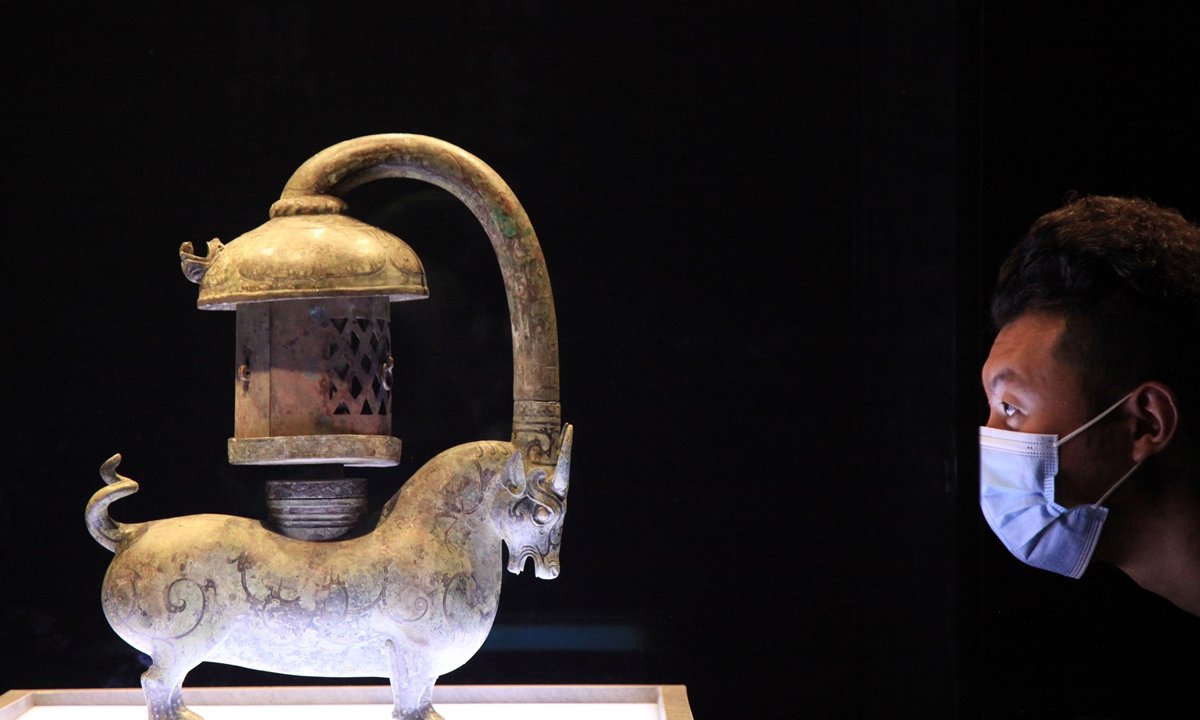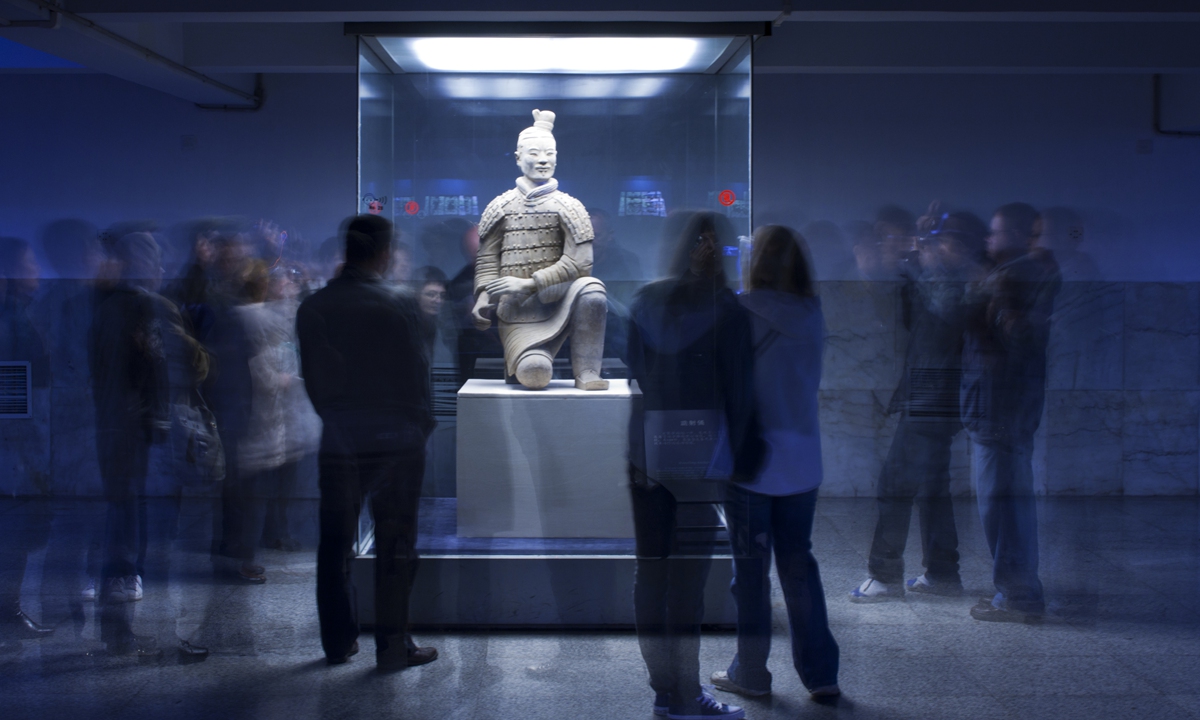
A man visits a cultural relic from Han Dynasty (206BC-AD220) displayed at Nanjing Museum in East China's Jiangsu Province on May 15. Photo: VCG

Photo: VCG
Editor's Note: International Museum Day falls on Wednesday in 2022. As an annual event, various museums around the world hold special activities to celebrate the day. In this series, the Global Times talks with museology scholars about this round's theme "the Power of Museums" and how to bring out the potential of museums, especially amid the global pandemic.
As China's main event venue for International Museum Day 2022, the Hubei Provincial Museum in Central China's Hubei Province has given a full demonstration of the theme "the Power of Museums" through forums, exhibitions and an immersive light show on the Yangtze River that made use of cutting-edge AR and VR technology.
Besides the Hubei Provincial Museum, other institutions across China also plan to launch events to celebrate the day. Museums in Northwest China's Xinjiang Uygur Autonomous Region have launched various special themed photography exhibitions, online exhibitions and intangible cultural heritage experiences to celebrate the day, the Xinjiang Daily reported.
Window into history and cultureAccording to the official website of the International Council of Museums (ICOM), the aim of the theme "Power of Museums" is to explore the potential of museums to bring about positive change in communities through "the power of achieving sustainablity, the power of innovating in digitalization and accessibility and the power of community building through education."
Shen Ruiwen, dean of the School of Archaeology and Museology of Peking University, told the Global Times that museums can be seen as "a window to history and culture" that shows how the world and nations developed and gives insight into human civilization.
"The power of museums has three important aspects," Zhao Feng, curator of the China National Silk Museum, told the Global Times.
"The first is making new technology more powerful and promoting new research. The second is cooperating with more museums in China and abroad. The last is integrating with the community and influencing members of the community."
Steven Back, a representative of the Hungarian National Museum, told the Global Times that 2022's theme is very appropriate as museums around the world are becoming more influential, and countries in both the East and West are relying more heavily on the soft power of cultural diplomacy.
Both Shen and Back pointed out that museums are influencing the lives of people of all ages through various means including exhibitions, research, education and cultural creation.
Statistics show that in 2020, the annual number of visitors to museums in China grew to 1.2 billion, of which 290 million were minors, the Guangming Daily reported.
According to Shen, although promotional methods have been keeping up with the times, the function of museums - spiritual edification - has not changed. As more Chinese, both old and young, take an interest in history and traditional Chinese culture during the current cultural renaissance, the impact, or power, of museums has been amplified.
"Museums have an important duty to represent a country, a city, or an industry, increasing their status and influence. A city with an excellent museum will enjoy greatly elevated status and perception, and this will attract more cultural and tourist resources. In the long run, this will significantly boost social and economic development," echoed Back.
Post-pandemic development The number of museums in China has been increasing in recent years. Media has reported that by the end of 2020, the number of museums across the country had reached 5,788. Experts noted that the combination of advanced technology and museums are one of the characteristics of Chinese museums today.
"I've been working in China for the past 18 years. China has experienced a huge boom in museum development during this period, including several new museum construction waves, and notably, huge improvements in smart museum development," said Back.
The three experts said that the pandemic has promoted the digitization of museums around the world, while also presenting a lot of challenges for international cultural exchanges, which has led to more online cooperation among museums.
"It is difficult to transport and install cultural relics and artworks when a country's borders are locked down. Digital exhibitions are gaining in importance and may be the way forward," said Back.
He added that due to difficulties posed by pandemic controls, the Second Hungary-China Museum Digitalization conference will be held online on Wednesday with the participation of top experts from China and Hungary. The topic is digitization and museum pedagogy in the post-pandemic age.
Zhao said that the China National Silk Museum has co-built an international digital museum along with more than 40 museums.
"We can hold exhibitions together in the digital museum and currently are holding a competition for planning exhibitions. The contest has attracted about 900 participants from around the world."
On Friday afternoon, the Chendu Museum in Southwest China's Sichuan Province and the Museum Boijmans Van Beuningen in Rotterdam, the Netherlands co-launched an online event to exchange experiences and views on the future development of museums and art collection. The year 2022 marks the 50th anniversary of the establishment of diplomatic ties between the two nations and this event is a testimony to this friendship.





